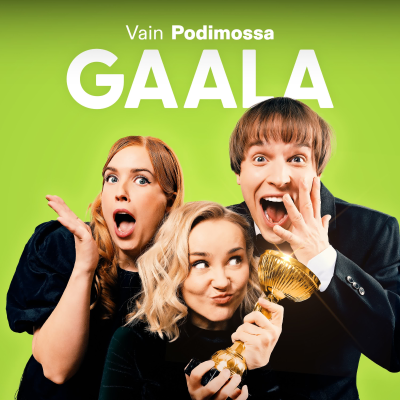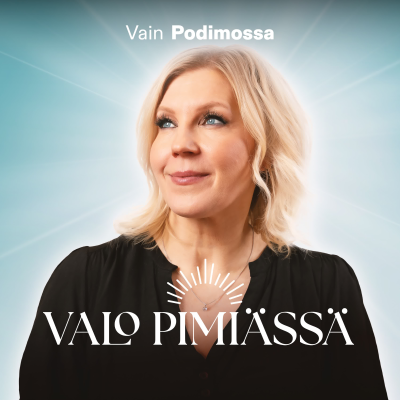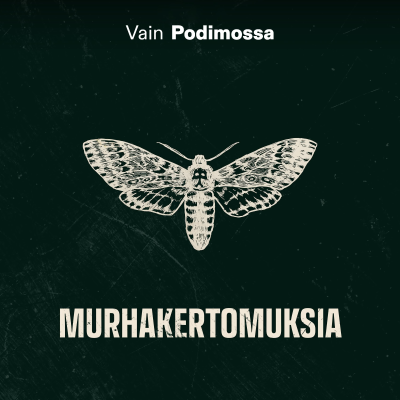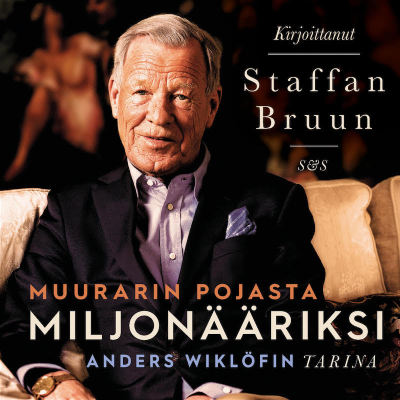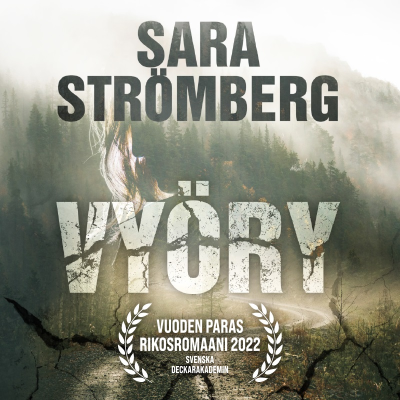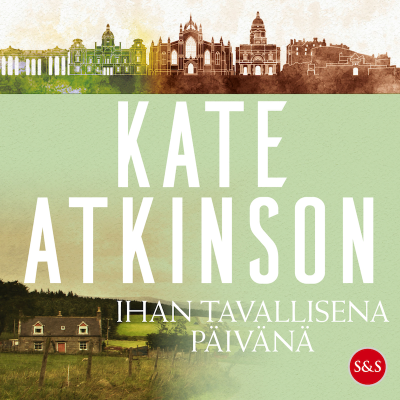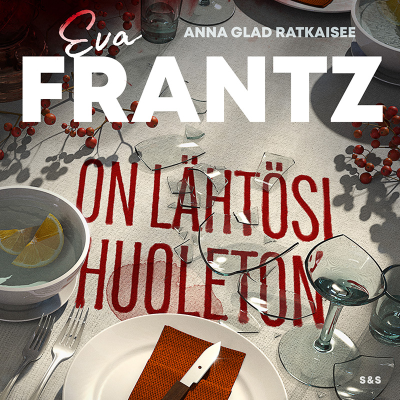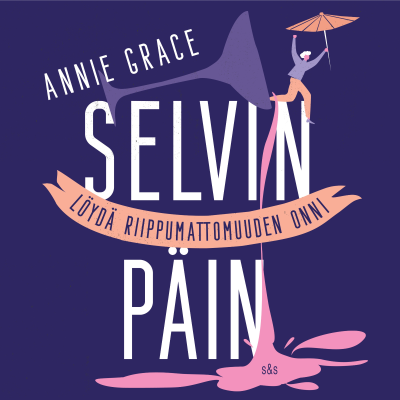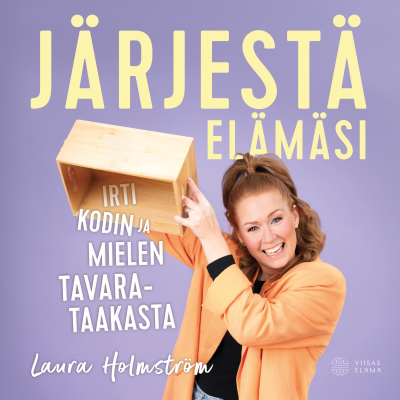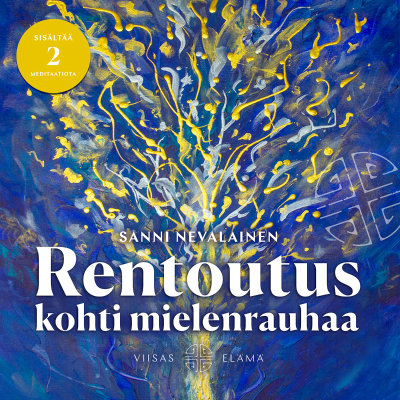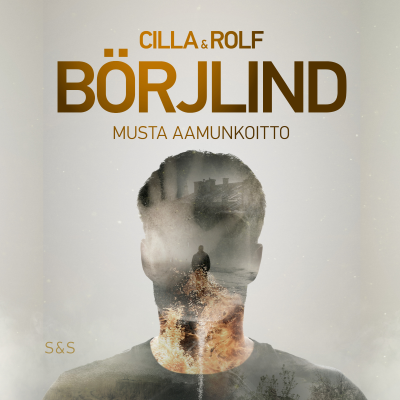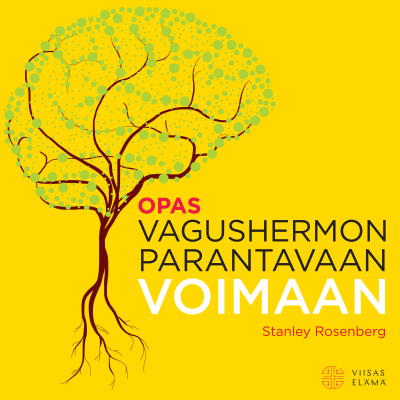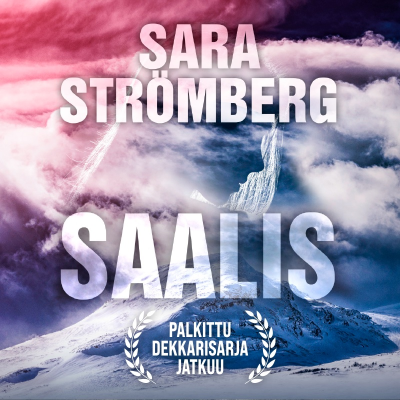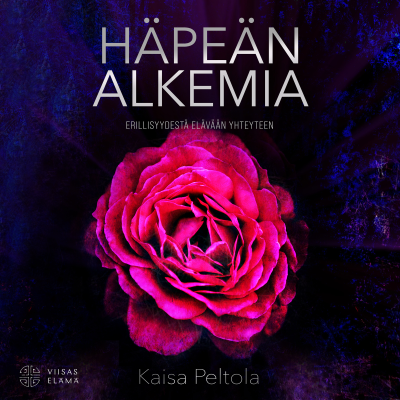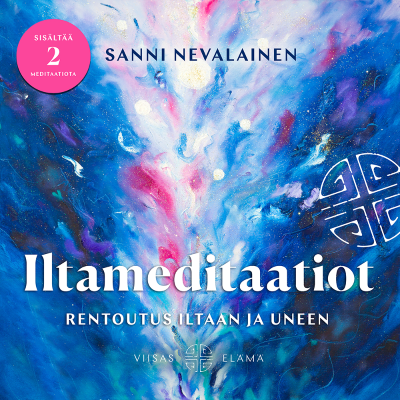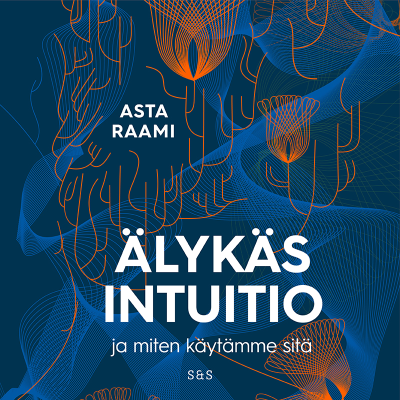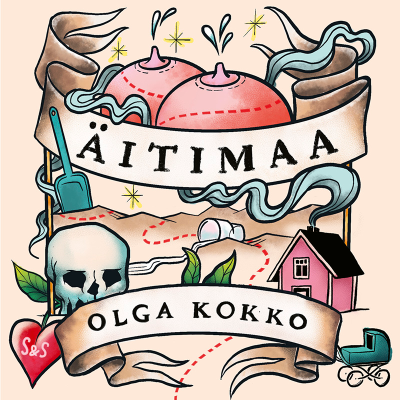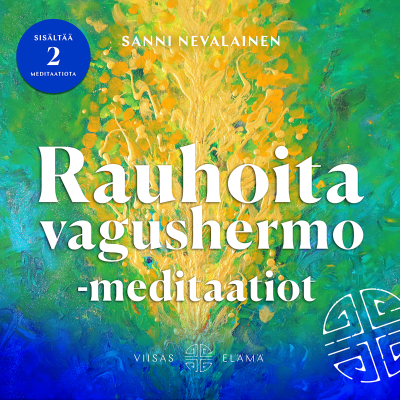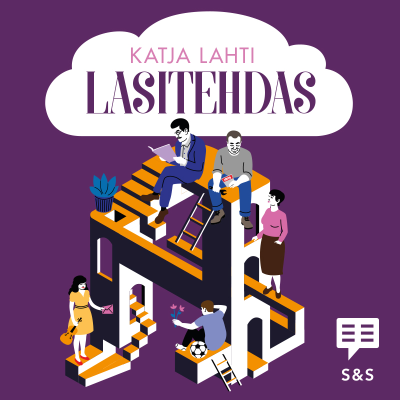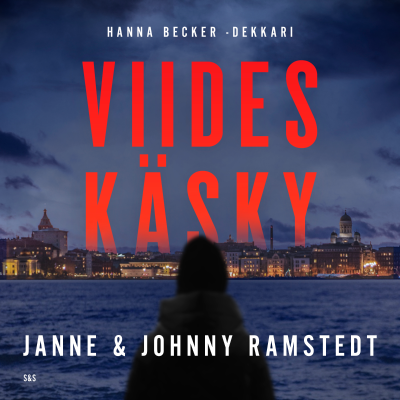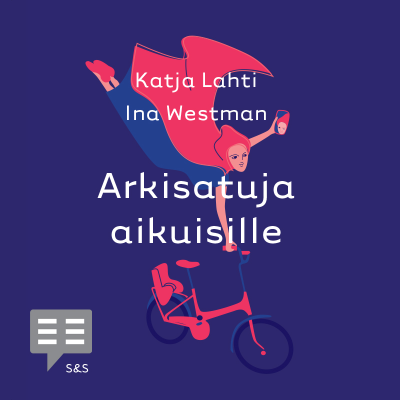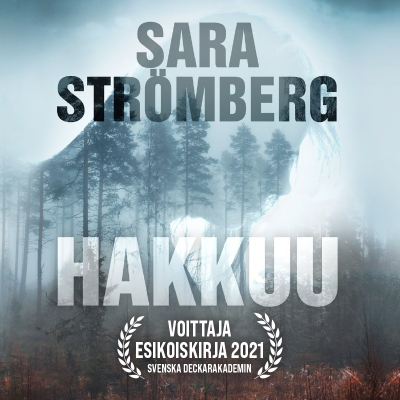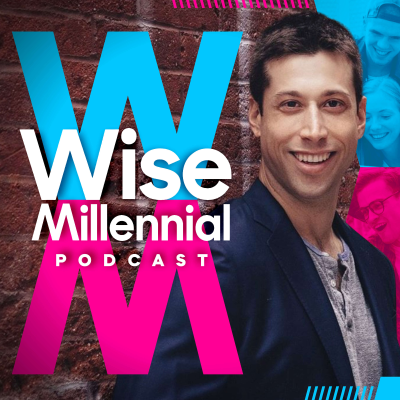
Wise Millennial
englanti
Talous & ura
Rajoitettu tarjous
2 kuukautta hintaan 1 €
Sitten 7,99 € / kuukausiPeru milloin tahansa.
- Podimon podcastit
- Lataa offline-käyttöön
Lisää Wise Millennial
Discover different types of communities in an intellectual, non-judgmental arena. "What brings us together? What motivates us?" Award-winning author, former restaurant owner, and native New Yorker Peter Noble Darrow, (B.A, Psychology, M.B.A) interviews entrepreneurs building modern community. We can often be trapped in limited ways of thinking, so let's challenge millennial culture together. The truth is, we are more alike than we are different. This is YOUR community. YOU are a wise millennial. - P.S. Are you a part of an awesome community? Share it in your review, so others can learn more about it! Join our community at www.wisemillennial.com and connect with other amazing humans! - Follow us on instagram @wisemillennial, www.instagram.com/wisemillennial for sneak peaks of upcoming episodes! Based on the award-winning book, "Wise Millennial: A Field Guide to Thriving in Modern Life" (Happy Wellness, Inc. 2019)
Kaikki jaksot
28 jaksotSkincare, "ClearSTEM" │ Kayleigh Christina, COO & Co-Founder
JOIN US IRL: www.instagram.com/wisemillennial [http://www.instagram.com/wisemillennial] Kayleigh Christina [https://instagram.com/kayleigh.christina], COO & Co-Founder of "ClearSTEM [https://www.instagram.com/clearstemskincare/]", sits down IRL to discuss her journey with acne and her line of groundbreaking, innovative products (anti-aging, anti-acne, non-toxic). We also discuss why education is so important, the high costs and effects of stress/hormone changes between men and women, setting personal boundaries, healthy work balance routines, self-image and mental health, pressures of being an entrepreneur and not feeling constantly behind compared to others, and how to find fulfillment in your current job. LEARN ABOUT CLEARSTEM: https://www.instagram.com/clearstemskincare/ [https://www.instagram.com/clearstemskincare/] INTERVIEW QUESTIONS: * So Kayleigh, briefly explain to us what is ClearSTEM? * People experience all of kinds of traumas or health issues, not everyone makes it their professional life. im curious what about your experience was so impactful that made you want to go into this full time and dedicate yourself to it? * I’d like to focus in on is the education component to your business, and building a community around it. Because I feel like where most Millennials struggle is in finding fulfillment and meaning in their career, or doing things just for the optics of it. And you wear your heart on your sleeve and are very vulnerable to the outside world. Tell me more about that decision and strategy to focus on the education aspect * Not to make this a gender thing, but I didn’t realize how much women deal with skin issues and the complex web of decisions and money associated with it. Let’s list them. Hormones, birth control, digestion, exfoliation, expensive serums, antibiotics, supplements, endless prescriptions. It’s exhausting just thinking about it. Do we need to educate men as much as we do women? * Do you ever feel overwhelmed? How do you create routines and practices to find balance? * After your own experience with acne and meeting Danielle, why did you decide to go the CPG/product route, as opposed to being a coach or creating an online course? * Let’s talk briefly about building community. How do you get the word out? How do you grow a community? Is it all word of mouth? Do you have to spend heavily on Instagram and facebook ads? What tips or lessons can you share? * Other than improving their own skin, what does the ClearSTEM community care about? What are some common themes or trends you can share, or repeated misinformation? * I want to ask you about self-image. Because you’re both a beauty company and a health company. On one hand, you help people regain confidence in themselves and improve their overall skin health. That’s an incredibly important thing, and there’s nothing controversial about that. There’s nothing wrong with people wanting to look and feel good, am I right? On the other hand, as a society, and with social media, often people feel really pressured to have perfect skin, perfect body, free from any imperfections, using filters. What’s your take on that, and where’s the balance from a mental health perspective? * (Are we too much of a consumerist culture? As you said yourself, people always want whatever is new and exciting. But often it can be misleading.) * What pressures do you feel Kayleigh? * What advice would you give to those who don’t feel fully satisfied in their career or current job? * Hypothetically speaking, if you hadn’t discovered Danielle, what would you be doing? * What is something you wish you had known 5 years ago, or that someone had told you, which would have made your life so much easier?
Hiking, "LA Hike Club" │ Tracy Komlos & Aimee Greenace, Co-Founders
JOIN US IRL: www.instagram.com/wisemillennial [http://www.instagram.com/wisemillennial] Tracy Komlos [https://www.tracykomlos.com/] and Aimee Greenacre [https://www.aimeegreenacre.com/], Co-Founders of "LA Hike Club [https://www.instagram.com/la_hikeclub/]", sit down to discuss their journey creating a community with over 900+ members (and growing!) exclusively through word of mouth. We also discuss why having a barrier to entry is a good thing (hint: better group energy), how do you build a culture that people want to be a part of? Tips on how to create a community, fear of failure vs. fear of success, when does a side project turns into a full time business?, avoiding burnout, worldwide expansion, the importance of having a morning routine! SOME OF TRACY AND AIMEE’S FAVORITE HIKES: Temescal, Westridge Trail, Los Lionnes, Pasa nuermas, Will Rodgers, Murphy’s Ranch trail LEARN ABOUT LA_Hike Club: https://www.instagram.com/la_hikeclub/ [https://www.instagram.com/la_hikeclub/] JOIN THEIR TELEGRAM GROUP: https://t.me/joinchat/1gZvzllfQ6M1NzBh [https://t.me/joinchat/1gZvzllfQ6M1NzBh] INTERVIEW QUESTIONS: * Did you guys meet while you were both attending University of South Wales in Sydney? Tell us briefly about your journey to LA Hike Club and collaborating together. * This to me is about so much more than hiking. Hiking is easy. What’s more interesting is how do you build a culture that people want to be a part of? The importance of having consistency, even when no one initially shows up. Everyone has to start from the ground floor so to speak. I’d love for you to share with listeners some insights into key lessons you’ve learned about building a community, managing a community. It takes a lot of work. * A lot of people don’t start things or take initiative because they either fear failure, or actually fear success. I’m curious if you’ve ever felt that way, and how did overcome that? What advice can you give to others? * As you grow, how do you make sure that new people feel welcomed? Is that important? Are people nervous or self-conscious about their own level of fitness when they show? * How do you create a community that doesn’t feel cliquey, and is inclusive? Hiking requires a certain level of fitness, so it probably attracts people who are into wellness, or aspiring to increase their level of fitness. As you grow, how do you make sure that new people feel welcomed? Is that important? Are people nervous or self-conscious about their own level of fitness when they show? * What are your goals for LA Hike Club? After what # of members do you feel the need to monetize? What if you wake up and tomorrow you have 20,000 members in your telegram group? * Conversely though, how do you avoid burnout? * What is something you wish you had known or that someone would have told you 5 years ago that would have made life so much easier? How can people learn more about LA Hike Club and get involved?
Holistic Wellness, "The Chronically Well" │ Kelsey Tracewski, Founder
JOIN US IRL: www.instagram.com/wisemillennial [http://www.instagram.com/wisemillennial] Kelsey Tracewski [https://www.linkedin.com/in/kelseytracewski/], Founder of "The Chronically Well [https://www.instagram.com/thechronicallywell/]", sits down to discuss her career transition from a busy corporate lifestyle to owning her own wellness coaching practice, her journey with Crohn's and important lifestyle changes to prevent chronic illness, the effects of stress and inflammation in our daily lives, the challenges of switching careers later in life, importance of community and accountability, and how to differentiate yourself professionally within any competitive landscape. LEARN ABOUT THE CHRONICALLY WELL: https://www.thechronicallywell.com/ [https://www.thechronicallywell.com/] INSTA: @thechronicallywell [https://www.instagram.com/thechronicallywell/] INTERVIEW QUESTIONS: * So tell us a little more about this big change in your career, what motivated you to start the chronically well? What’s the backstory? * When did you start thinking about changing careers? * Let’s talk about Crohn’s. So I have to admit I know of the term, but honestly don’t know exactly what the disease is. Can you describe to us a little more about what is Crohn’s disease? From a very high level? * So is your work specific to helping people with Crohns, or any chronic illness? It’s hard to group all chronic illnesses under the same umbrella, is it not? Or do all chronic illnesses respond favorably to your program? * Can changing your lifestyle now be preventative for the future? And how do you get that across to someone who doesn’t currently have a problem and thinks their lifestyle is okay? In other words, not to scare people, but is it possible that I may genetic predisposition to a chronic illness that I’m not even aware of, and maybe I’m a month away from it revealing itself? I’m sure most people only seek help after there’s a problem, not before. I’m curious of your thoughts on this? * Should or can people test for genetic predispositions to chronic illnesses? * I’m sure there are people listening now who also are thinking about changing careers, but fear taking that plunge. Who might be feeling stuck in a comfy corporate lifestyle. We all have financial concerns, no matter what our financial situation is. What advice would you give to others who might be considering making a career change? What are some lessons you’ve learned so far in your journey? * I’m going to ask you a tough question. There are many coaches in the world. What gave you the confidence to say to yourself, “I can enter this really competitive landscape and differentiate myself”? And how does one differentiate themselves? * Tell me about the community aspect to your work. 1 on 1 coaching is necessary. But how can you leverage a community to help people? In other words, we all need accountability partners in order to make sustainable change. It’s hard to commit to something by yourself. * What is something you wish had known 5 or 10 years ago, that would have made your life so much easier had you known? * How can we learn more about you and get involved?
Unique Experiences, "More Of That" │ Eric Dybvig & Meredith Baker, Co-Founders
JOIN US IRL: www.instagram.com/wisemillennial [http://www.instagram.com/wisemillennial] Eric Dybvig [http://www.instagram.com/_ericdd] & Meredith Baker [http://www.instagram.com/themeredithbaker], Co-Founders of "More Of That [https://www.instagram.com/more.of.that/]", unique and "bar-alternative" experiences to foster deeper meaningful connection, sits down IRL to discuss their origin story, their experiences living across the world and the psychology of tribalism, loneliness & social anxiety, how to prevent people from being "cliquey"?, alcohol and why many Millennials rely on substance-use for social connection, insights into their ideation process, differences between being single vs. in a relationship, and the what the future holds for More Of That.... LEARN ABOUT MORE OF THAT: https://moreofthat.life [https://moreofthat.life/] INSTA: @more.of.that [https://www.instagram.com/more.of.that/] INTERVIEW QUESTIONS: * What is More of That? More of what? * What’s been your favorite event so far? * What’s your Origin Story? * Why are people tribal? How do we break that pattern? * Loneliness -Why does connection need structure in order to work? * Alcohol - I’d be really curious to hear your thoughts on why alcohol, or drugs or substances in general, plays such a predominant role in social interactions. Does it go back to social anxiety? Or just looking cool? * Why is it so hard to scale community businesses? * What's your Ideation process. You’re promoting unique, alternative events. How do you come up with these events? Do you feel pressure like you constantly have to “one up” each previous event in terms of creativity? * I feel like when you’re single you care more about meeting others, and then there’s a clear divide. Once you start a family, you no longer actively seek out connection. Is that a fair statement? * How can people get more involved and learn about more of that?
Conscious Dance Party, "The Get Down" │ Tasha Blank, Founder
JOIN US IRL: www.instagram.com/wisemillennial [http://www.instagram.com/wisemillennial] Tasha Blank [http://www.tashablank.com/], founder of "The Get Down [https://www.thegetdownnyc.com/]", a conscious dance party, and her newest project "The Portal [https://tashablank.mykajabi.com/tasha-blank]", sits down virtually to discuss the former Get Down (the best dance party in New York City), how the dance floor is a microcosm of life, her upbringing raised outside D.C. and Minneapolis growing up surrounded by music and creativity, the connection between dance and trauma healing, her own struggles with shyness, social anxiety, sadness, anger, and how dance allows to connect with your inner beauty, feeling judged, brave vs. safe when feeling aligned, her post covid pivot, burnout, and next steps with portal. LEARN ABOUT THE GET DOWN: https://www.thegetdownnyc.com/ [https://www.thegetdownnyc.com/] JOIN THE PORTAL: https://tashablank.mykajabi.com/tasha-blank [https://tashablank.mykajabi.com/tasha-blank] INSTA: @tashablank [https://www.instagram.com/tashablank/] INTERVIEW QUESTIONS: * Briefly explain, what is The Get Down? * This to me feels like a Millennial version of Studio 54. It is the coolest, most fun, eclectic dance party out there. To me, it is the archetypical Millennial community. At face value, it seems so simple, centered around dance. But it’s actually much deeper than that, and touches many social issues, in terms of inclusivity, stereotypes, gender, race, etc. Is that a fair statement? * Tell me about your upbringing briefly. I know you attended NYU….did you grow up in New York City? How would you define your childhood? * I know you’ve spoken previously about trauma, depression, eating disorders, feeling defeated. What advice can you share about trauma healing? Other than dancing as the cure. * I want to talk about inclusivity…..But to go from the opposite approach, what has happened with society, where it feels like we can’t even express ourselves with words? We’ve become so polarized, so overly sensitive to anyone feeling marginalized, that the least controversial thing we can do is move our bodies….and even that might be politicized or labeled. Is dance the only safe way to express ourselves anymore? * Covid has to be hardest thing for you….how has get down pivoted? So much of energy is about experiencing it with other people, feeding off their body movements. You lose that virtually. * What are the barriers? What prevents people from signing up? * Dancing often can be associated with drinking or drug use, festivals, burning man, etc. allowing us to free ourselves. but interestingly, you encourage the opposite, and promote sobriety at your events. I’m curious if you could shed light on this decision, and why that is such an important aspect? * Competitors….daybreaker. What makes you different? What's the magic sauce that differentiates you? * What is something you wish someone had told you five years ago, or you had told yourself, that you had to learn on your own, but would have made life so much easier had you known?
Valitse tilauksesi
Rajoitettu tarjous
Premium
Podimon podcastit
Lataa offline-käyttöön
Peru milloin tahansa
2 kuukautta hintaan 1 €
Sitten 7,99 € / kuukausi
Premium
20 tuntia äänikirjoja
Podimon podcastit
Lataa offline-käyttöön
Peru milloin tahansa
30 vrk ilmainen kokeilu
Sitten 9,99 € / kuukausi
Premium
100 tuntia äänikirjoja
Podimon podcastit
Lataa offline-käyttöön
Peru milloin tahansa
30 vrk ilmainen kokeilu
Sitten 19,99 € / kuukausi
2 kuukautta hintaan 1 €. Sitten 7,99 € / kuukausi. Peru milloin tahansa.



